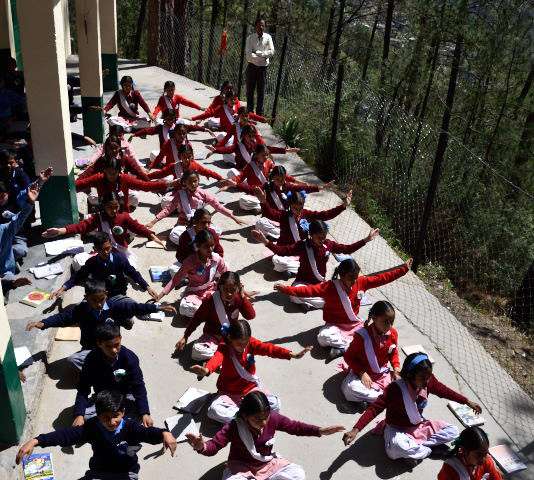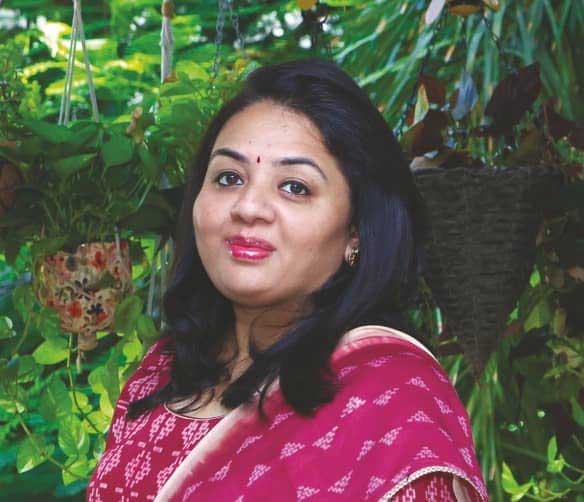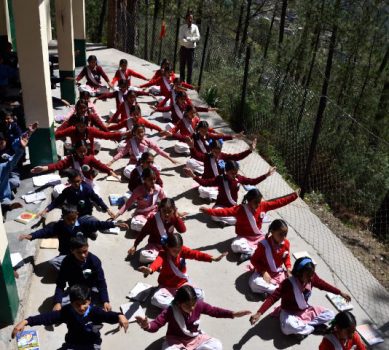Madhura Visweswaran, Co-Founder of the Redwood Montessori School Llp, and the Redwood Foundation shares insights into the changing educational landscape
 Of late, due to the situation we find ourselves in, online education has come to the forefront and is, in some instances, also replacing the classroom experience. I recently read a report about high school students pursuing online Advanced Placement (AP) programmes or classes, which universities abroad require, even while they are in school to get admission into the school of their choice. These online classes provide an opportunity for children to school themselves – learn, assimilate knowledge and work, even in the physical absence of a teacher. The basic component for this kind of self-schooling comes from intrinsic motivation based on a structure offered through coursework. But what’s even more significant and encouraging for a child is the parent and teacher’s faith in him/her.
Of late, due to the situation we find ourselves in, online education has come to the forefront and is, in some instances, also replacing the classroom experience. I recently read a report about high school students pursuing online Advanced Placement (AP) programmes or classes, which universities abroad require, even while they are in school to get admission into the school of their choice. These online classes provide an opportunity for children to school themselves – learn, assimilate knowledge and work, even in the physical absence of a teacher. The basic component for this kind of self-schooling comes from intrinsic motivation based on a structure offered through coursework. But what’s even more significant and encouraging for a child is the parent and teacher’s faith in him/her.
Trust in our children, in their choices, and the right learning environment are the key to their happiness and success. This has to be preceded with information regarding the opportunities available to them, the long-term effects of choices and an analysis of the pros and cons. For all parents, the need to make choices for children and sometimes a lack of of trust in their instincts can be their biggest roadblocks. However, if our children had the aforementioned freedom, it must be accompanied by guidance and structure from parents.
 Often, opportunities come in the form of adversities, and the pandemic-induced lockdown has created a new opportunity for parents and children to adapt to online learning. The new platform, of course, comes with its own set of anxieties – as parents, coming from the traditional school of thought, we worry that our children may miss out on many lessons because of the absence of classroom experience.
Often, opportunities come in the form of adversities, and the pandemic-induced lockdown has created a new opportunity for parents and children to adapt to online learning. The new platform, of course, comes with its own set of anxieties – as parents, coming from the traditional school of thought, we worry that our children may miss out on many lessons because of the absence of classroom experience.
In our new role as parent-teacher, many of us might find ourselves under pressure – we want them up to speed with the next academic year’s syllabus, learn a new skill, practice the piano, exercise, the list is endless. All these actions and expectations come only from a place of love, but the pressure during these Covid times might trigger fear, anxiety or other issues, which could be wide-ranging, according to mental health experts.
The question then is — why can’t we trust our children and their abilities?
Do we think that children and young adults, when left to themselves, are not capable of making informed choices? On the contrary, there is empirical evidence to prove that the best recipe to help a child attain goals should include a few tablespoons of intrinsic motivation, advice and structure, and dollops of faith in his/her ability after we have prepared them to use this freedom effectively. This has precisely been Dr Montessori’s approach towards children. She emphatically stated that each child is unique, and comparing children is like comparing apples and oranges. Each child is put on Earth with his/her purpose and if everyone became doctors and engineers what happens to teachers, artisans, and people who work with their hands?
Being a Montessori mom and teacher, I too have been questioning myself and have similar worries. But after listening to my colleagues from different parts of the world, the voice is one — having faith in the child is the key to success.
Shown above is the jersey of my daughter who represented her school at a national swimming meet, competing against national-level swimmers. But it is her approach to regional and national-level practice that made all the difference to us as parents. While practising for the regionals, she practised tirelessly as she wasn’t yet in the rigour of class 10. But for the nationals (when she was in class 10), she practised whenever she had a moment to spare — showing self-motivation and the ability to make well-informed choices, balancing her studies and love for swimming. As parents, we were not involved in the decision-making process, and, in fact, didn’t want her to participate.
She ranked fourth at the nationals and took it well in her stride. Aware of the volume of classwork, my daughter told us that her efforts for the national meet were not up to the mark. She wasn’t interested in winning; her aim was to better her timing, for which she had worked out a plan along with her coach.
This is true self-realisation. Children have their own turning points when they learn to make informed choices coupled with parental guidance.
 Parenting is the only occupation that doesn’t come with a handbook or coursework to prepare us. It is a journey, albeit tough and challenging, but the most joyful one.
Parenting is the only occupation that doesn’t come with a handbook or coursework to prepare us. It is a journey, albeit tough and challenging, but the most joyful one.
So, place your faith in your children, discuss and explain the options to them and let them make their choices. You need not put your child in a Montessori school to follow the philosophy, that is, freedom within boundaries and to follow the child. Most importantly, watch for signs of emotional well-being. At this moment, their mental health is far more important than an online class. Always keep the channels of communication open, talk to them and, most importantly, listen.
